Business
Dangote Refinery: Vitol, Sunoco Take First Petrol Cargo to US, Glencore-Shell Take Second
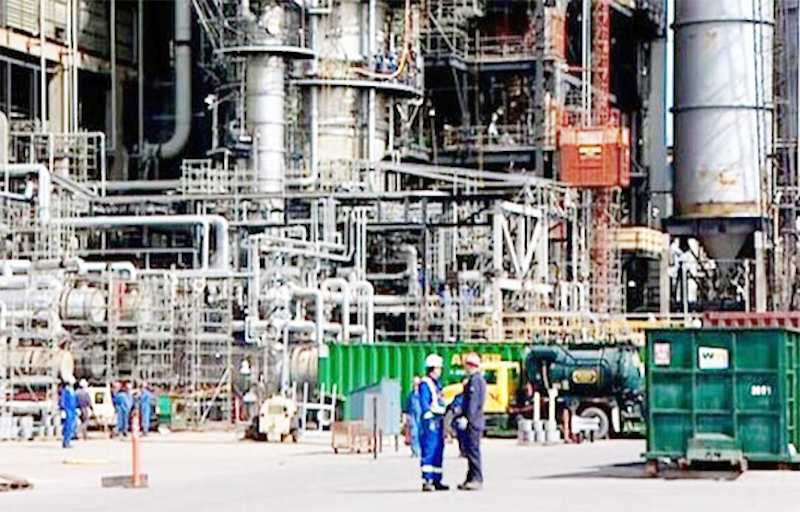
•Glencore sells second Dangote cargo to Shell, arrives Sept. 19
•World must spend $540bn on oil exploration annually to sustain output, IEA says
•Ojulari calls for stronger African collaboration to achieve energy security
Top global oil trader Vitol and North American fuel distributor Sunoco took delivery of the first US import of petrol from Nigeria’s new Dangote refinery on Monday, according to vessel-tracking data.
The delivery, on the tanker Gemini Pearl, marked a major milestone for the 650,000 barrel-per-day Dangote refinery, as energy market participants had been waiting to see when its production would start meeting strict US motor fuels standards, a Reuters report said.
Vitol purchased the Gemini Pearl’s cargo of around 320,000 barrels of petrol from Geneva, Switzerland-based Mocoh Oil, and sold most of it to Sunoco, according to one source and ship-tracking data. It was not immediately clear what volume Vitol sold to Sunoco and how much it will keep.
The vessel was discharged at Sunoco’s Linden facility in the New York Harbor area, vessel-tracking data showed.
The sources requested anonymity to discuss confidential details. Vitol and Sunoco did not immediately respond to requests for comment.
Mocoh Oil, which earlier this year confirmed a partnership with Dangote to export products from the refinery, did not immediately comment outside of business hours in Switzerland.
After a string of startup delays, the Dangote refinery, one of the world’s biggest, has reshaped global energy flows by ramping up output sharply since last year. It is expected to significantly reduce Nigeria’s fuel imports, while exporting its surplus mainly to Europe.
A second cargo of products from Dangote to the US was sold by Glencore to Shell on the vessel MH Daisen, which is set to arrive in the New York Harbor area around September 19, one of the sources said and ship-tracking data showed.
Glencore declined to comment, and Shell did not immediately respond. Vitol also purchased from Mocoh a third cargo of petrol made by the Dangote refinery, with the vessel Seaexplorer set to deliver that in the New York Harbor area around September 22, the sources said.
The sources said the destination of the undelivered cargoes could change based on market conditions.
While the cargoes back expectations that the Dangote refinery is set to sharply alter global energy trade, they are likely to be the only ones for a while. The refinery’s petrol-producing unit could be shut for two to three months for repairs, industry monitor IIR Energy said earlier this month. Dangote did not respond to Reuters’ earlier requests for comment on the outage.
Also, the International Energy Agency (IEA), has maintained that the world needs to spend some $540 billion a year looking for oil and gas to maintain current output by 2050.
While global spending is likely to hit $570 billion this year, the amount would be down slightly from 2024, Christophe McGlade, head of the IEA’s energy supply unit, said on a webinar. The outlook means that companies will need to tap reserves that haven’t yet been discovered, unless demand shifts away from fossil fuels.
Its forecast is part of a report that analysed more than 15,000 fields and how fast their output is declining. Without investment, global supply would fall by the combined production of Norway and Brazil — more than 5 million barrels a day — every year.
That amount is around 40 per cent higher than it was in 2010, partly because of more reliance on shale production, particularly from the US, which typically depletes faster than conventional reserves.
The outlook matters because there’s little sign of oil demand peaking soon, meaning that elevated output will be needed for years to come. While a global oil surplus is forecast for this year and next, BP Plc this year projected that supply growth outside of the Organization of the Petroleum Exporting Countries from early 2026 would remain largely flat for 12 to 18 months.
“In the case of oil, an absence of upstream investment would remove the equivalent of Brazil and Norway’s combined production each year from the global market balance,” IEA Executive Director, Fatih Birol, said in a statement. “The situation means that the industry has to run much faster just to stand still,” it added.
Meanwhile, the Group Chief Executive Officer of the Nigerian National Petroleum Company Limited (NNPC), Bayo Ojulari, has reaffirmed Nigeria’s unwavering commitment to partnering with other African nations to achieve sustainable energy security across the continent.
Ojulari made this assertion while addressing industry leaders at the 7th African Petroleum Producers’ Organisation (APPO) National Oil Companies CEOs Forum, where he stressed the urgency for Africa to accelerate its energy transition and secure its energy future.
He highlighted the decline of European investments in fossil fuel refineries, with most set to phase out by 2030, noting that this development makes it imperative for Africa to take decisive action in harnessing its abundant resources for the benefit of its people.
“Africa must take ownership of its resources and policies. Our policies should be designed by us. With our vast resource base and improved governance structures, I am confident the continent can secure its energy destiny,” Ojulari said.
The GCEO outlined strategic infrastructure projects spearheaded by NNPC, including the Ajaokuta–Kaduna–Kano (AKK) Gas Pipeline project, designed to strengthen connectivity across Nigeria’s energy network. He further emphasised progress on the Nigeria–Morocco Gas Pipeline Project, an expansion of the West African Gas Pipeline (WAGP), which will enhance regional integration and cross-border energy trade.
“When we started, we faced challenges with alignment, payments, and collaboration, but today the framework is working. The plan is to extend the pipeline to Côte d’Ivoire as the first phase, and ultimately to Morocco,” he explained.
Ojulari also pointed to the enabling investment environment created by the Petroleum Industry Act (PIA), which continues to open new opportunities for investors across the oil and gas value chain, an NNPC statement said.
On security, he disclosed that through strengthened partnerships with host communities and security agencies, Nigeria has achieved 100 per cent pipeline availability for the first time in two decades, a milestone that has restored confidence in the resilience of the country’s energy infrastructure.
Benchmarking with global energy leaders such as Petrobras, Petronas, and Saudi Aramco, the GCEO reiterated NNPC’s readiness to collaborate, share knowledge, and drive collective progress with African peers to unlock the continent’s full energy potential. (Thisday)
-
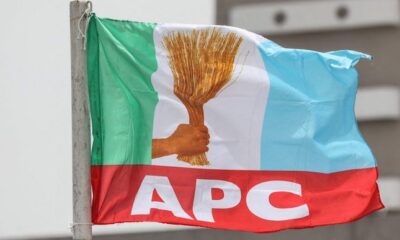
 Politics12 hours ago
Politics12 hours agoLagos APC hits back at Peter Obi, says Tinubu’s borrowing strategic, not reckless
-
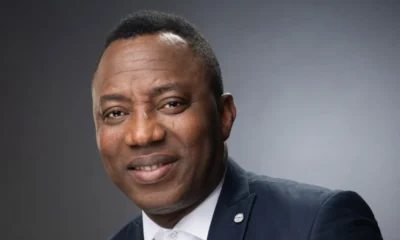
 Politics12 hours ago
Politics12 hours agoSowore sues Nigerian govt, Meta, X for rights violations
-

 Politics6 hours ago
Politics6 hours ago“Tinubu is a well known tax collector” – Former presidential candidate
-
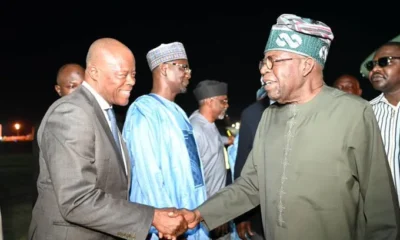
 News12 hours ago
News12 hours agoTinubu returns to Abuja after 12-day trip abroad
-

 News11 hours ago
News11 hours agoWike defends Rivers LG elections, accuses Atiku, Obi of misrepresenting the law
-
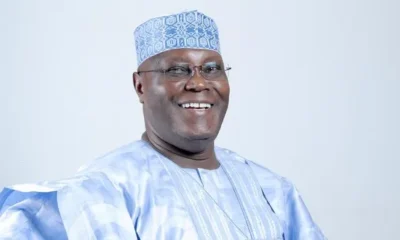
 Politics11 hours ago
Politics11 hours agoPresidency counters Atiku, cites rising reserves, falling inflation as proof of progress
-
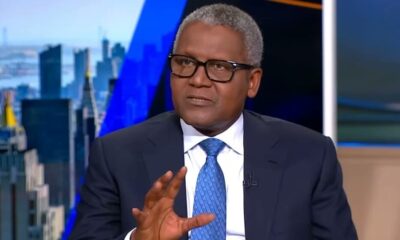
 Business6 hours ago
Business6 hours agoLenders would have taken over my assets if refinery project failed – Dangote
-

 News11 hours ago
News11 hours ago‘Don’t provoke bandits after peace deals in Katsina’, Sheikh Gumi warns military
